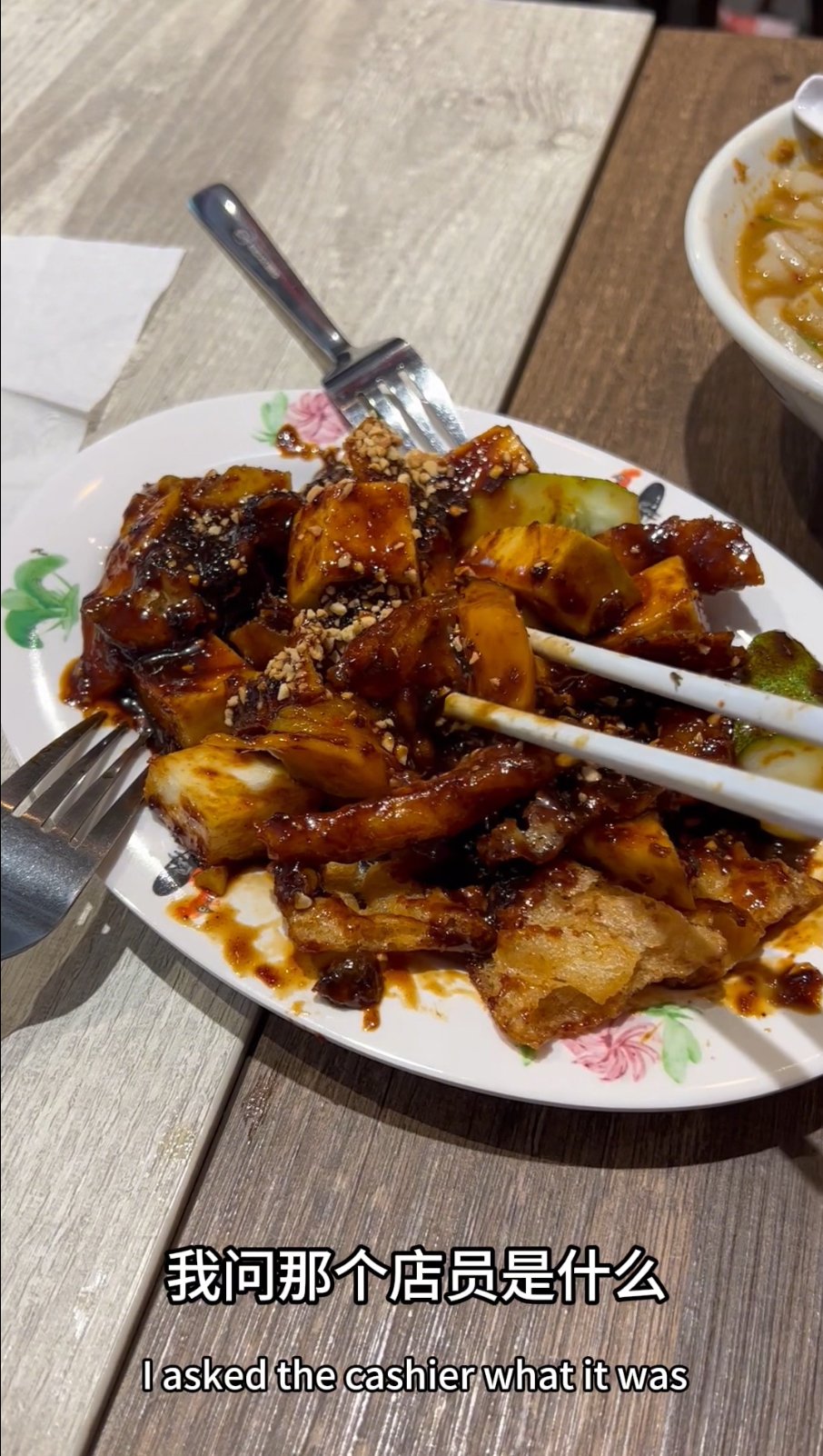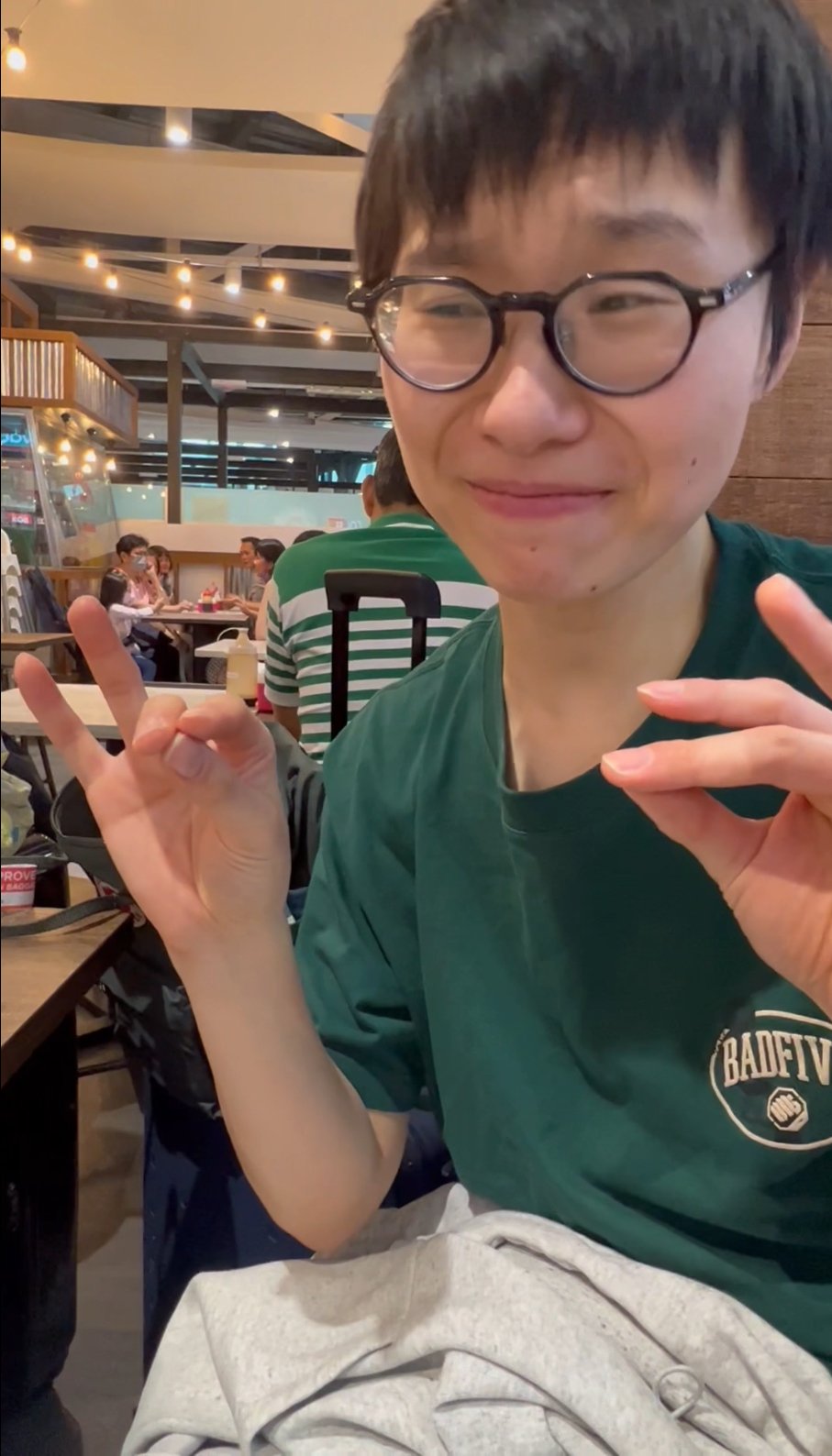Woman responds to backlash after Malaysians lambast her for holding her nose while eating asam laksa
A woman from China who had stopped for a layover in Malaysia tried asam laksa but found the dish’s smell overwhelming, pinching her nose when the food arrived.
She uploaded a clip of her reaction on Xiaohongshu, which sparked controversy after it made the news in Malaysia.
In the video, she described the food as “stinky” and said she couldn’t understand the English that was spoken in Malaysia.
The woman has since come forward to clarify the situation and explain that in her culture, the word ‘stinky’ doesn’t carry negative connotations.
She thus meant no disrespect with her video and was only sharing a humorous moment with friends.
Woman posts video of herself pinching her nose while eating asam laksa
The video of the woman — Winnie Jiang — trying a bowl of asam laksa in Malaysia was uploaded to Xiaohongshu on 5 March.
It showed her pinching her nose after a bowl of asam laksa was served to her table.
“This Malaysian restaurant stinks,” the subtitles read, referring to the food’s smell.
“I can only eat [the laksa] like this,” Ms Jiang said while pinching her nose.

Source: Xiahongshu
She later also grimaced after having a taste of the dish.
Thereafter, she ordered rojak but did not know what it was.
When Ms Jiang asked, the cashier simply replied “fruits”.

Source: Xiahongshu
She professed that she couldn’t communicate with them as she had trouble understanding what they said in English.
Ms Jiang and her friends also ordered ice kacang — a shaved ice dessert popular in Singapore and Malaysia. This time, she likened the dish’s smell to essential oils.
Though she found rojak unique with its blend of pineapple and soy sauce, her feelings about the food in Malaysia seemed clear from the end of the video.

Source: Xiahongshu
“Malaysian food is…mmmm…” she said while making a face. In the end, she just invited people to try the food for themselves.
No intent to disrespect other cultures
After the video of Ms Jiang reacting to asam laksa made it to Malaysian media platforms such as China Press, it attracted brickbats from netizens who felt that she was disrespectful to other cultures.
Some pointed out that she didn’t have to make such a big deal out of disliking the food, and felt she was doing it to seek attention.
However, Ms Jiang said she had no intention of seeking attention or even expressing any negativity.
Speaking to MS News, the stand-up comedian in her 30s explained that she had been in Malaysia on a layover for six hours while travelling from Shanghai to Melbourne to watch Taylor Swift there on 13 Feb.
She had been drawn by the “stinky” smell at the restaurant and decided to dine there.
“In my experience, food that smells pungent usually tastes good, like stinky tofu and luoshifen from China,” Ms Jiang said.
Drawing on her experiences eating at Singaporean restaurants in Shanghai, Ms Jiang decided to order laksa. But she didn’t realise that asam laksa in Malaysia is a completely different variety from its Singaporean counterpart.
She described the laksa as ‘stinky’ and ‘spicy’.
“My friends and l didn’t know what else we should order, so we ordered the same thing as the table next to us.”
Backlash was disheartening
Ms Jiang said she hadn’t intended to spark any controversy and had only wanted to “share a laugh” with her fans on social media.
“When I tried the laksa, my immediate, instinctual reaction was to squeeze my nose, a moment my friends found hilarious and decided to capture on video,” she explained.
“As a comedian, documenting the lighter, humorous moments of my life is something I genuinely enjoy.”
The backlash has been a disheartening experience for Ms Jiang and her family, she said.
“I was devastated by the cyberbullies’ attack on me and my country, as well as their misinterpretation of my intention,” Ms Jiang told MS News.
She also criticised outlets that used her pictures without permission.
Words & actions weren’t meant to convey anything negative: content creator
Ms Jiang further noted that her use of the word “stinky” wasn’t meant to convey any negativity.
“In my culture, it’s a term not associated with negative connotations,” she explained. “It’s like we actually use the word ‘stinky’ to advertise our stinky tofu from Hunan.”
Ms Jiang said she would invite Malaysians to China to try food like stinky tofu, luoshifen, and douzhi. She believes anyone unfamiliar with such “stinky” cuisine would squeeze their noses instinctively.
“I won’t blame people for doing this because the food being ‘stinky’ is a fact.”
Have news you must share? Get in touch with us via email at news@mustsharenews.com.
Featured image adapted from Xiahongshu.









